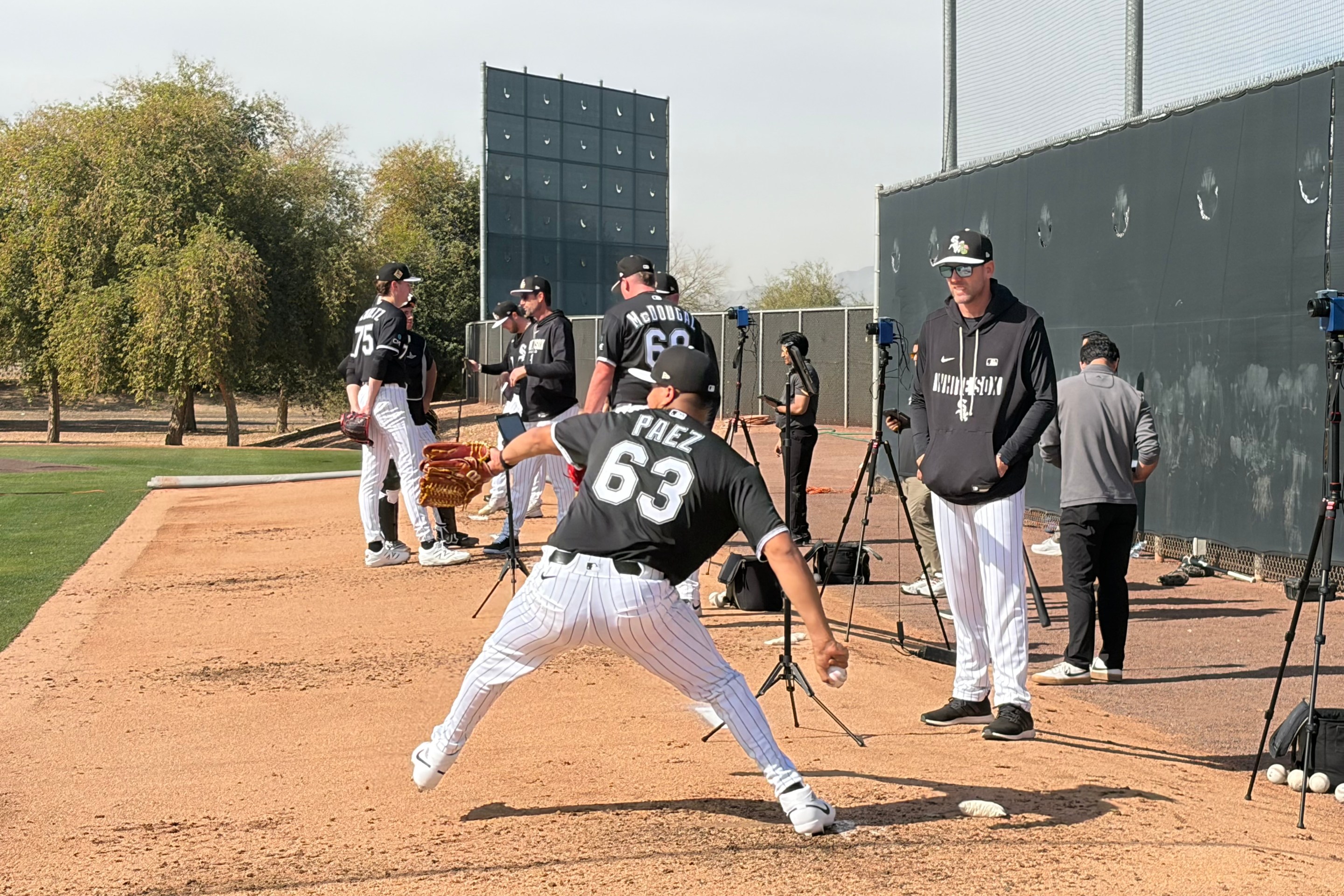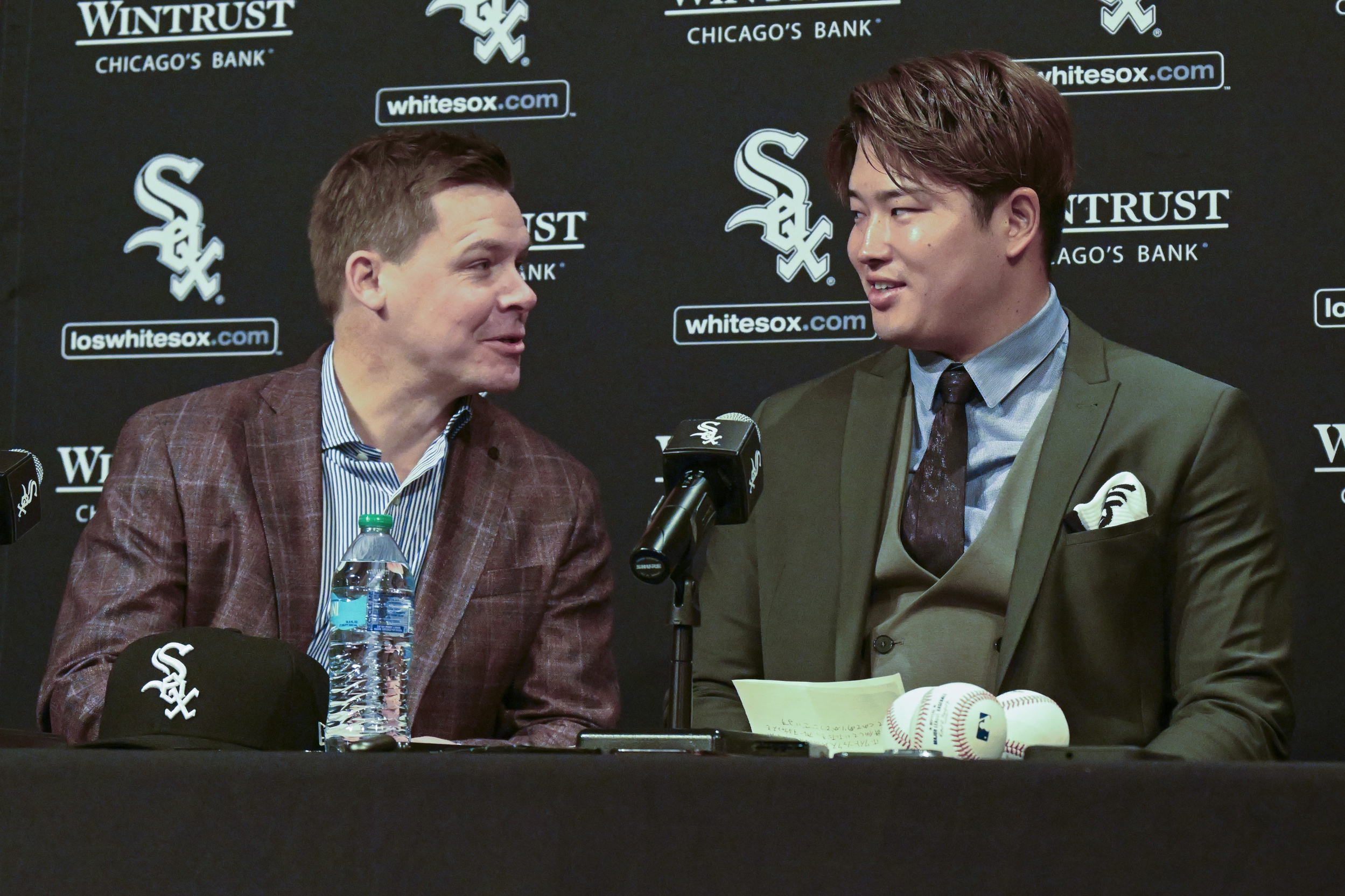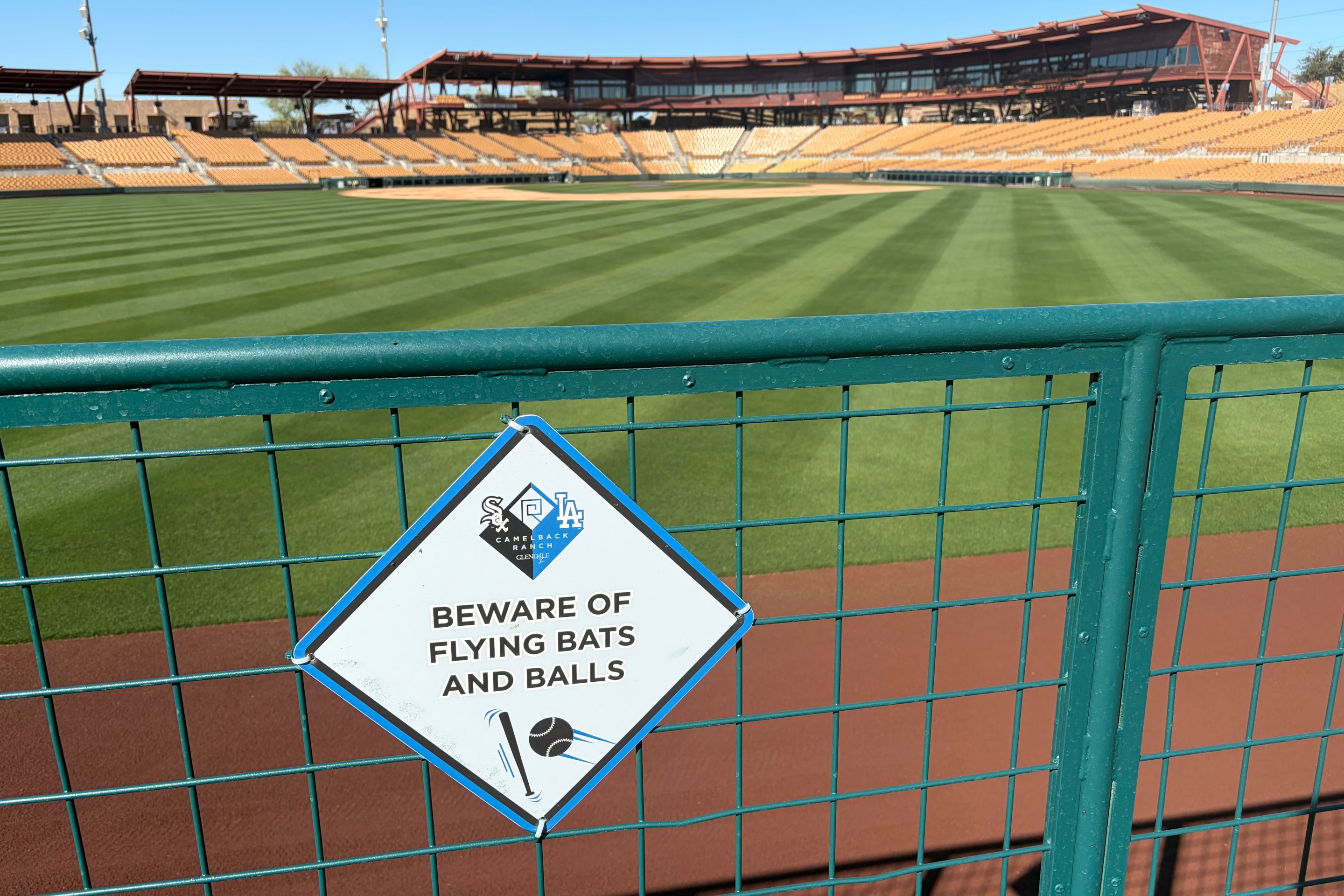We haven't done a White Sox mailbag in a while, so let's make up for lost time. As always, thanks for your questions and support.
Are there any major moves in free agency that make sense for the White Sox right now? Contrarily, what major moves are they actually likely to make in free agency?
Orajestad9
The White Sox opened the winter with a pursuit of Paul DeJong Of All People, so I think that points to a greater strategy of using the open market for some low-stakes investments in immediate competence. And as I wrote on Monday, if there's a Dylan Cease or Eloy Jiménez trade that could come to fruition within the next week or two and jumble the 40-man roster, then it probably makes sense to put free agency on the back-burner, especially if options aren't flying off the board.
In a scenario where Getz is asked to cut significant payroll rather than reinvest it, then I'd expect free agency to follow in the footsteps of DeJong ("we need somebody"). Starting pitching is the one area where maybe they don't wait until later, because they can't be expected to trade for a whole new rotation, and they have a brand new Brian Bannister to put to use.
I've been more or less bracing for the White Sox to sign Whit Merrifield, and I'm not sure if the Sox's additions of DeJong and Lopez make that less likely (Merrifield isn't needed to play second, lowering his value) or more likely (of course the White Sox would want him to be an unimpressive Plan A for right field).
What would Chris Getz realistically need to do this offseason for you to consider it a “success” given the circumstances?
Gregory W.
On one hand, Jerry Reinsdorf set him up for failure because he said he wanted a guy who could hit the ground running, and Getz appears to be doing anything but. Getz is probably following the prudent course if he is thinking more about 2025 or 2026, but it just undermines the whole reason that he's the guy without a search for anybody else, so I don't think Getz will succeed at doing what Reinsdorf said he envisioned.
Once you resign yourself to the idea that Reinsdorf is mailing everything in and this is what you get for following one of his professional sports enterprises, then a success is something that gives you a much clearer idea of how Getz can build a contender in 2025. The best case scenario for 2024 looks a lot like 2019 -- a team in need of some time and help, but with talent that is visible and an effort that can't be questioned. Except that 2019 team might be a contender in the 2024 AL Central.
If some of the "key" White Sox players were Thanksgiving side dishes, what would they be?
Kyle N.
I'm really out of practice with this question, because I haven't had a full-scale Thanksgiving dinner in at least 15 years. As it stands, I'm pretty much agreeable with any set of preferences -- turkey's good, all manners of cranberries are good, most forms of potato are good. Most of the White Sox are not good.
There's only one I can generate with any sense of conviction: Eloy Jiménez is sweet potato casserole with marshmallows. Sometimes it's good for a few bites, but there's a sense of silliness that feels out of place.
Since I think any reasonable person wouldn’t delude themselves into believing the White Sox will be competitive in 2024, who do you think would be good free agent targets for 2025 assuming no major long-term deals are inked this offseason?
Trooper Galactus
Juan Soto is around for those who live in a world where Reinsdorf learns his lesson about not going for Bryce Harper when the conditions for signing him couldn't have been friendlier. Assuming a $400 million deal isn't at all possible, then you're looking at a pair of 35-year-olds: Jose Altuve and Zack Wheeler.
We all had experience picturing the White Sox landing Wheeler the last time he was a free agent, and all he's done is go 43-25 with a 3.06 ERA with 19.6 bWAR over four seasons with the Phillies, including one that was only 60 games long. But I think I can honestly say that I've never considered Altuve in a White Sox uniform until this very moment, and it's among the weirder ones, partially because he's inextricably linked to everything the Astros have been over the last decade, for better or worse.
In the aforementioned scenario where the White Sox are actually looking to add and still haven't solved second base, it's faintly plausible because of his age. The chances are also remote because of his age, as I imagine he'd be able to sign a contract that takes him towards or to 40 if he staves off decline for another year, and that's more risk than the White Sox are willing to absorb. But if there's a noticeable drop in any area of his game, there's a chance he could require $80 million or less, which is what would be required to get Reinsdorf to give it a second thought.
How much bearing, if any, should the results of the upcoming draft lottery dictate the rest of the offseason and Getz’s in-season moves?
Matt
I don't see them as connected, because too much can change between December and July for the White Sox to arrange any potential returns for Dylan Cease or whoever around who they might be likely to draft.
Baseball America had a what-the-hell mock draft after the lottery last winter, and here's how things changed between then and draft day:
- Pirates: Dylan Crews (actually taken at 2)
- Nationals: Chase Dollander (9)
- Tigers: Wyatt Langford (4)
- Rangers: Jacob Wilson (6)
- Twins: Jacob Gonzalez (15)
- Athletics: Max Clark (3)
- Reds: Rhett Lowder (7)
- Royals: Walker Jenkins (5)
- Rockies: Enrique Bradfield Jr. (17)
- Marlins: Paul Skenes (1)
That's actually better than I thought, as you have to go until No. 18 to get a guy who wasn't selected in the first round or Competitive Balance Round A, but even minor shifts make a big difference in who's available when, and for what.
Are teams creative enough when it comes to seeking an edge via abusing the MLB fanatical system? For example, I am a rich owner but don’t like my roster. Next year I am going to give Soto 400 mil over 10 years….but pay 200 mil in year one. Luxury tax wise it would be £40 mil per year, so wouldn’t ruin you tax wise… and I’m rich, so it’s just money. The following years you then have two options, exploit a now lower pay role in comparison to talent and invest again in players or… the genius bit, trade Soto’s 9 year 200 mil contract to a team who would sell their whole farm to get that excess value, either way using my extreme wealth to quickly and fairly build a monster team. I’m using this as an extreme example of what was in my off season plan. I feel teams (including the Sox) don’t go nuts with trying out of the box things on the economic side of the game, which due to its foibles is exploitable.
English_sox_colin
I think for something at that scale, you have to draw a distinction between "teams" and "owners." Teams aren't likely to be that kind of creative because that kind of money is negotiated at the ownership level, and owners generally only approve of owners who are mindful of the cartel. You hear other owners griping far more about Steve Cohen and the late Peter Seidler than you do about John Fisher. Paying a player more in one season than the majority of the league's payrolls would mess up a lot of things downstream -- anchoring for what's an acceptable salary in a given year, the value of the qualifying offer, and perhaps even some arbitration projections for players with similar service time.
My guess is only a few teams could actually afford to issue that kind of money to one player in a given season, especially since the RSN model as a reliable source of massive revenue is collapsing. The Padres were one of the teams affected by the bankruptcy of Bally Sports' holding company, and they took out a loan to cover player payroll in September. So balance sheets may be unusually delicate at this moment in time. Even if they weren't, I think that's too much boat-rocking for a financial model that pays off incredibly well in the long run, and if somebody like Cohen tried something like that, the league would quickly move to close that loophole with punitive measures.
How will Getz reconcile his emphasis on middle infield defense with Montgomery rated as an average at best defensive SS
Mark S.
I think Getz is stressing defensive improvement because the White Sox have so many glaring gaps in their roster and their overall approach to the game while Reinsdorf is supplying way less money than before, so going glove-first is the cheapest way to produce rosterable options who give the faintest sense of improvement. If Montgomery is able to play a passable shortstop while bringing stable, above-average contributions to the plate, then you'll probably see the rhetoric change. Which is fine, presuming Getz can actually offset his weaknesses elsewhere. Rick Hahn couldn't do that with his best players. Somehow, he ended up exacerbating them.
If Getz is serious about improving the defense, trading Eloy and moving Vaughn to DH seems logical. Of the free agent 1st basemen, which is the best defensively? Brandon Belt maybe?
SoxOdyssey2031
For what it's worth, Vaughn actually graded out as an OK first baseman:
- Defensive Runs Saved: 0
- Outs Above Average: -6
- SABR Defensive Index: 0.1
My eye test would call him a little subpar, but I did detect improvement in his playmaking over the course of the season. I'd rather just see if he's average-ish going forward, because trying to get a few extra runs of defense from somebody like Belt or Dominic Smith feels too clever by half. They'd be gambling on defensive fluctuations of the less athletic, while also risking that moving Vaughn to DH would resume undermining his value just like playing the outfield did, because he's slugged just .429 in each of the last two seasons, and he suddenly stopped walking. The Sox are better off leaving him alone for another year and then revisiting the topic as he gets more expensive through arbitration.
How much effort would it take for the front office to get a foothold in Japan and Korea? White Sox have not been a player in that market since Iguchi. But they are missing out on a pipeline of near-MLB ready players that are available at relatively young ages.
Wayne
Here's a Washington Post story from April by Jesse Dougherty talking about how the Nationals have never signed a player out of Japan, South Korea, Taiwan or any other country in East Asia, and you can probably apply most of it to the White Sox. Dougherty writes that two-thirds of teams have a full-time scout on the ground in the region, but the Nats aren't one of them. They did have a scouting coordinator (Marty Brown), but they let him go back in 2017.
Dougherty makes it sound like it takes a serious commitment, not necessarily in terms of raw dollars, but also in terms of buy-in from above, because otherwise it's a non-negligible amount of scouting money for nothing.
“I had really good players, and at that time that I was there for Washington it just sort of fell on deaf ears. They didn’t really think about it,” said Brown, who played, managed and then scouted in Japan. “I can understand, too, because if you’re going to get into that business of going over there and checking out talent in Japan or Korea, you have to be willing to spend some serious money. And they didn’t want to do that.” [...]
“You have to pay a posting fee in a lot of cases, you need to hire an interpreter, you have to help move their family, you have to have at least some infrastructure in place when the player gets to you,” Brown said. “I mean, there are just a lot of things that go on that I don’t think Washington really wanted to get into at that time.”
Considering how unimaginative the White Sox have with their biggest outlays in Latin America, I can't imagine that they'd have what it takes to succeed in a place where they have no natural interests or ties.
It's somewhat ironic that the Sox don't see value in Asia because the Kenny Williams/Rick Hahn front office loved using 2005 as a shield, and the 2005 White Sox probably don't win it all if they didn't take a chance on Tadahito Iguchi. Or maybe it's not ironic at all if landing contributors from that region requires more sophistication than was required with Iguchi, because the Sox aren't known for keeping up with the times.






